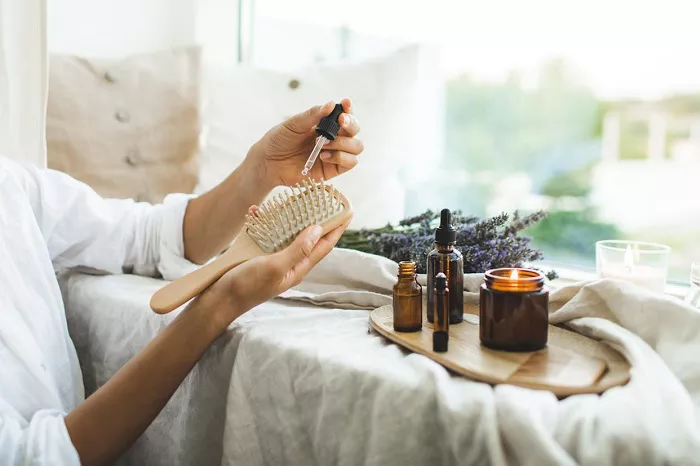Hair loss is a widespread concern among women, often triggered by a range of factors—from genetics and aging to stress, tight hairstyles, pregnancy, and menopause. Fortunately, many forms of hair loss can be treated or even reversed with the right approach.
Dr. Ross Kopelman, a hair surgeon at Kopelman Hair Restoration, notes that female pattern hair loss (FPHL) is the most common type he treats. “Women typically experience diffuse thinning around the part line and crown, rather than the bald spots men often develop,” he explains.
Other common types include telogen effluvium, a temporary shedding usually caused by illness, rapid weight loss, or stress, and traction alopecia, which stems from prolonged tension on the hair due to tight braids or ponytails. Autoimmune disorders like alopecia areata are also prevalent causes.
Dr. Elle de Moll, a dermatologist at Elite Dermatology Physicians, highlights that menopause and pregnancy are also major triggers. “A decrease in estrogen and progesterone during menopause shortens the hair growth cycle,” she says. Pregnancy-related stress can lead to temporary shedding as well.
So what are the best products to address female hair loss? We consulted leading experts to curate a list of top-rated options—from medicated treatments to scalp-supporting serums.
Best Overall: Hers Hair Growth System
Hers stands out as a comprehensive hair care platform offering both over-the-counter and prescription treatments via telehealth. One of its top options is oral minoxidil, a medication that keeps hair follicles in the growth phase longer. Dr. Kopelman recommends it especially for those who experience irritation from topical formulas.
While Hers offers fewer prescriptions for women compared to its male-focused counterpart Hims, spironolactone is a notable alternative. It works by blocking androgens like DHT, a hormone linked to FPHL, thereby reducing shedding and promoting regrowth.
Best Topical Treatment: Keranique Hair Regrowth Treatment
Containing 2% minoxidil, Keranique offers a gentle yet effective option for women. Dr. Kopelman advises starting with lower concentrations to avoid irritation, particularly for sensitive scalps. Keranique also allows for one-bottle purchases, ideal for first-time users testing tolerance.
Best Shampoo: Nizoral Anti-Dandruff Shampoo
Though shampoos are often less effective at delivering active ingredients due to their brief contact with the scalp, Nizoral stands out for its ketoconazole content. This anti-fungal ingredient also has anti-androgen properties that may help reduce hereditary hair loss and support scalp health.
Best Natural Shampoo Alternative: Pura D’or
Formulated with saw palmetto, rosemary oil, and pumpkin seed oil, Pura D’or offers a botanical approach. While less potent than medical treatments, these ingredients may improve scalp health and prevent hair thinning. Free of sulfates, parabens, and silicones, it’s suitable for sensitive scalps.
Best Hair Serum: Nutrafol Growth Activator
Nutrafol’s serum combines caffeine and ashwagandha exosomes to reduce stress-related hair loss and stimulate follicle activity. These ingredients are especially helpful for spot-treating thinning areas like the hairline or crown, offering a targeted approach to hair health.
Best Budget Duo: The Inkey List Caffeine + Peptide Treatments
This two-part regimen includes a Caffeine Stimulating Scalp Treatment and a Peptide Volumizing Hair Treatment. Affordable and easy to apply, they enhance follicle stimulation and hair strand thickness over time. For best results, follow the brand’s usage guidelines and consider nighttime applications.
Best Styling Protectant: Seen Blow-Out Creme
Ideal for those who frequently use heat styling tools, Seen’s formula protects against breakage with plant-based ingredients like hemisqualane and moringa. It also helps maintain a healthy scalp, a critical factor in long-term hair health tips.
Best Hair Mask: Amika The Kure
This deep conditioning treatment strengthens fragile strands and restores moisture using ingredients like borage oil and sea buckthorn. It’s available in multiple sizes, making it a flexible option for various hair types and budgets.
Choosing the Right Product
Selecting the right hair growth product depends on the type and severity of hair loss. Treatments include:
Oral Medications (prescription only): minoxidil, spironolactone, finasteride (not safe for pregnancy)
Topical Solutions: foams, sprays, and serums for targeted or widespread thinning
Shampoos: best for scalp maintenance; ketoconazole is the gold standard
Styling Products: protect against heat damage and promote a scalp-friendly environment
Supplements: may help if a nutritional deficiency is contributing to shedding
Expert Advice for Effective Use
Dr. Kopelman stresses correct application, especially for those with long hair: “Make sure to part your hair and apply products directly to the scalp, not just the strands.”
Women should also avoid tight hairstyles and harsh chemical treatments. According to trichologist Bridgette Hill, improper use of hair color can inflame the scalp and disrupt follicle activity.
Key Benefits of Hair Growth Products
Stronger Scalp Health: Ingredients like ketoconazole and caffeine improve circulation and reduce inflammation.
Strand Protection: Treatments like Amika and Seen protect against breakage.
Real Regrowth: Proven ingredients such as minoxidil can rejuvenate active hair follicles.
Final Hair Health Advice
While the right products can be transformative, consistency is key. Most treatments require up to six months to show visible results. For the best outcome, consult a dermatologist or hair specialist who can tailor a regimen to your specific needs.
And remember—hair health starts at the root. Treat your scalp with the same care you give to your skin, and results will follow.
Related Topics:
- This $20 Dermaroller is Revolutionizing Hair Health—Here’s Why
- Hair Loss in Women: Expert-Backed Treatments You Should Know About
- Jenn Tran Shares Hair Health Journey and PRP Injection Experience


